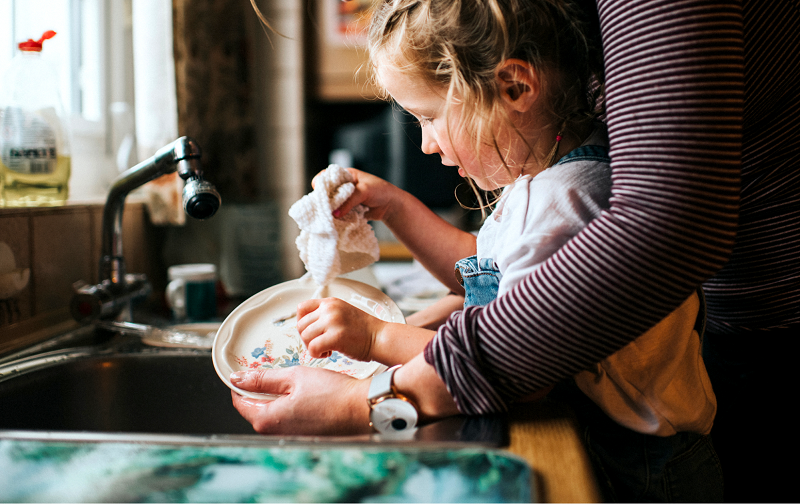What motivates your child? Now you may be thinking, nothing seems to motivate them and you’re not alone. Too many times parents or caregivers will say “nothing” or list a few activities the child enjoys when asked this question in therapy. I find this especially true when working with families of autistic children. In order to learn, especially in the early years, kids need to be motivated. Children who lack motivation may also have deficits in their regulation and engagement, which are foundational skills for development. Let’s go over the impact motivation has on learning, as well as ways to foster your child’s motivation at home and what that looks like in therapy.
Not all motivation is created equal
It’s important for children to be motivated when learning. Take a moment to think about how difficult it can be for neurotypical kids to learn when motivated, now think about how much more it is for autistic children to learn without motivation. In therapy our first priority is to find ways to motivate your child.
However, not all motivation is created equal. Let’s start with the two different types of motivation; extrinsic and intrinsic. Extrinsic motivation is something we get from external rewards that motivates our behavior. Intrinsic motivation is the internal satisfaction we get from doing something.
There is loads of research to support that external rewards do not increase motivation, they actually decrease it. In fact, a research study in the 70’s found that preschoolers who were rewarded a ribbon every time they drew a picture actually drew less than the children who weren’t given a ribbon. So the children who were rewarded drew less than the children who were not rewarded.
Seems almost unbelievable right? Ultimately, rewards result in temporary compliance, which isn’t likely to produce ideal outcomes for our kids. Think about what you want your child’s future to look like. For instance, do you want them to play baseball for the sole fact of winning, or do you want them to play because they love the game? My guess would be that you want your kids to engage in extracurricular activities because they LOVE them, they want to participate because it’s fun and enjoyable.
Bottom line, intrinsic motivation, the motivation to be better, do better, drives us to grow. This is as true from childhood all the way through adulthood. Two of the biggest factors that affect intrinsic motivation are autonomy and mastery. Autonomy refers to the control we have over what we do and when we do it (e.g. a child choosing what sport they want to play). Mastery refers to progress, and the drive to make things easier (e.g. how much they want to practice on their own to improve their skills in their chosen sport). So we need to give our kids a sense of autonomy and mastery in order to build their intrinsic motivation; The intrinsic motivation to communicate, write their name or climb the stairs!
Building intrinsic motivation at home
Okay, let’s talk quickly about external rewards at home. Often we use this type of reward if we want to get our kids to do something around the house or participate in a difficult routine, such as cleaning up their toys. You know how it goes “If you brush your teeth you get iPad time” or “First clean up your toys then ice cream!” And honestly this method works most of the time, but again this is a temporary solution. The kid who doesn’t want to clean up his toys, still won’t want to just because he gets ice-cream. So then what do we do?
Imagine if instead of using ‘first do this, then you get that’ for cleaning up your toys, you try a different approach. ‘You’ll score points for each toy that makes it into the basket’’ . The addition of the child having some control over the points they receive from making a basket can help foster that intrinsic motivation we’re aiming for. Additionally, bringing an element of fun and games to taks can make it an activity the entire family participates in, enjoyably! Motivation that results in fun can enhance learning, without having to resort to external rewards.
Bringing it back to autonomy and mastery, I think about my passion for houseplants. This hobby not only gives me a sense of freedom to choose the plants I want to care for, but unleashes my creative side. I get to decorate, arrange and trim my plants to be exactly how I want them to look in my home. This is autonomy. Once I conquer the care of a rare or difficult houseplant, I want to tackle the next variety. This is mastery. I am intrinsically motivated to take care of my plants.
Now here are six ways to support autonomy and mastery with children at home…
1. Give choices
Foster decision-making skills by offering a choice. For example, “do you prefer to go to the park or take a walk in the woods?”
2. Sign your kids up for activities outside of your home
Ask your child about their interests and what they want to learn more about.
3. All play is okay!
Let your child play with their toys the way THEY WANT to play with their toys.
4. Let your child struggle (safely)
Trying and making mistakes is part of growing. Letting your child learn from their mistakes creates opportunities to develop coping skills and confidence.
5. Label and validate your child’s feelings and perspectives
For example, “You hid behind mommy when we met the new neighbors, which made me think you were scared. Were you feeling scared? It can be scary to meet new people. What can we do next time to make it not so scary? How can I help?”
6. Be mindful of the demands you are placing on your kids. We want kids to feel successful. When your kids are becoming successful at something we want to praise their effort, not their achievement.
Rather than saying “your bed looks great, you are just perfect”. Try something like, “I noticed your bed has been made all week. It looks really great. I can tell you have been taking time to pick up all your pillows”.
Therapy just looks like play…

As a pediatric speech therapist, I hear this from parents often. Here’s why therapy looks like play, and why that’s a GOOD thing.
Learning needs to be fun or kids will lose their motivation. We need to consider autonomy and mastery to build that motivation. If we allow kids to choose the activities or the order of activities in a therapy session they feel in control. Their session will be centered around what they want to do, which in turn creates motivation (which we want & need!) and space for learning. So yes, therapy does look like play because in a sense it is play. Targeting goals within activities your child wants to do also supports their ability to generalize skills from the therapy room to their everyday lives.
You can do it!
Intrinsic motivation is essential to learning and development. If we can foster this motivation in the therapy room and beyond we are giving our children lifelong skills.
If you’re feeling like they’re the expert or she can get him to do more than I can–stop that! Anyone can do it! Work with your team to mimic those opportunities where your child feels motivated at home!
If you’re looking for guidance on how to help your child with (intrinsic) motivation, we’d love for you to meet with one of our specialists. We offer complimentary 15-minute consultations with our therapists that are available via phone or Zoom. Click here to find a time that works for you!
Marissa Thornquist, M.S. CCC-SLP is a certified speech language pathologist with RL Therapy Group, a multidisciplinary clinic in San Diego, California.







